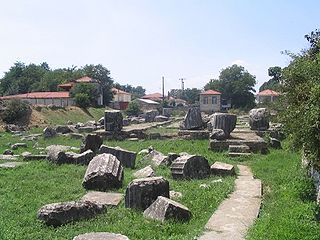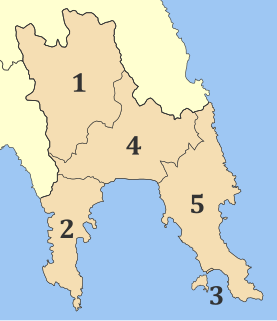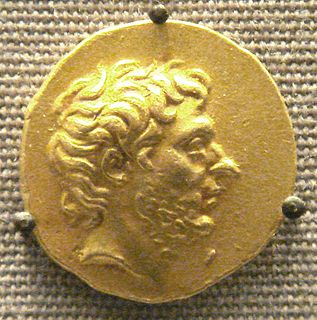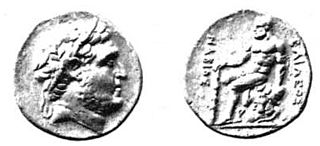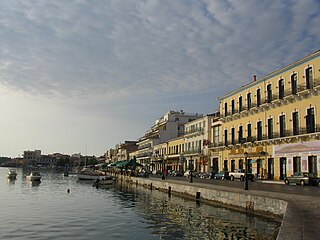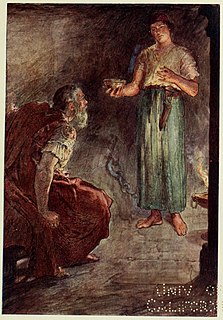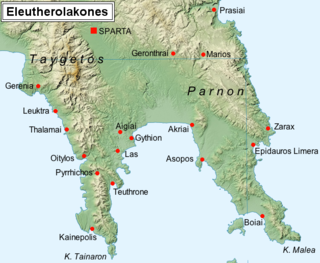| Battle of Gythium | |||||||
|---|---|---|---|---|---|---|---|
| Part of War against Nabis | |||||||
 A map of the southern Peloponnese. | |||||||
| |||||||
| Belligerents | |||||||
| Sparta | Roman Republic, Achaean League, Rhodes, Pergamum, Macedon | ||||||
| Commanders and leaders | |||||||
| Dexagoridas, † Gorgopas | Titus Quinctius Flamininus, Eumenes II of Pergamum | ||||||
| Strength | |||||||
| About 50,000 men | |||||||
The Battle of Gythium was fought in 195 BC between Sparta and the coalition of Rome, Rhodes, the Achaean League and Pergamum. As the port of Gythium was an important Spartan base the allies decided to capture it before they advanced inland to Sparta. The Romans and the Achaeans were joined outside the city by the Pergamese and Rhodian fleets. The Spartans held out but one of the joint commanders, Dexagoridas, decided to surrender the city to the Roman legate. When Gorgopas, the other commander, found out, he killed Dexagoridas and took solo command of the city. After Dexagoridas' murder the Spartans held out more vigorously. However, Titus Quinctius Flamininus of the allied forces arrived with 4,000 more men and the Spartans decided to surrender the city on the condition that the garrison could leave unharmed. The result of this battle forced Nabis, the tyrant of Sparta, to abandon the surrounding land and withdraw to the city of Sparta. Later that year, Sparta capitulated to the allies.

Sparta was a prominent city-state in ancient Greece. In antiquity the city-state was known as Lacedaemon, while the name Sparta referred to its main settlement on the banks of the Eurotas River in Laconia, in south-eastern Peloponnese. Around 650 BC, it rose to become the dominant military land-power in ancient Greece.

Rome is the capital city and a special comune of Italy. Rome also serves as the capital of the Lazio region. With 2,872,800 residents in 1,285 km2 (496.1 sq mi), it is also the country's most populated comune. It is the fourth most populous city in the European Union by population within city limits. It is the centre of the Metropolitan City of Rome, which has a population of 4,355,725 residents, thus making it the most populous metropolitan city in Italy. Rome is located in the central-western portion of the Italian Peninsula, within Lazio (Latium), along the shores of the Tiber. The Vatican City is an independent country inside the city boundaries of Rome, the only existing example of a country within a city: for this reason Rome has been often defined as capital of two states.

Rhodes is the largest of the Dodecanese islands of Greece and is also the island group's historical capital. Administratively the island forms a separate municipality within the Rhodes regional unit, which is part of the South Aegean administrative region. The principal town of the island and seat of the municipality is Rhodes. The city of Rhodes had 50,636 inhabitants in 2011. It is located northeast of Crete, southeast of Athens and just off the Anatolian coast of Turkey. Rhodes' nickname is The island of the Knights, named after the Knights of Saint John of Jerusalem, who once conquered the land.




